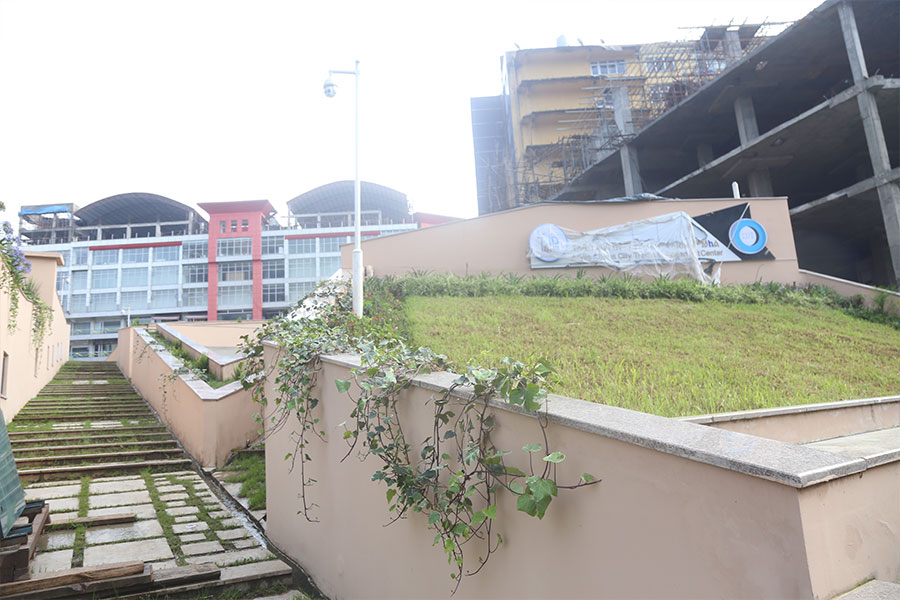
Viewpoints | Aug 16,2020
Aug 27 , 2022
By Bernard Laurendeau
Recently, a job summit took place at the Sheraton Addis Hotel. Part of the time was dedicated to the Enkopa Summit, where business-to-business interactions, two-panel discussions and pitches by entrepreneurs were carried out. The discussions centered around building a digital entrepreneurship ecosystem and a freelancing, outsourcing, and gig (FROG) economy in Ethiopia.
Among the attendees were public officials such as Muferiat Kamil, minister of Labor & Skills, entrepreneurs, representatives from large corporations, and development partners. This is not surprising as creating jobs remains one of the top preoccupations for the government, with rising inflation and unemployment not showing any signs of slowing down.
Ethiopia is situated in a triangle of high unemployment, large youth population and limited entry-to-mid level career opportunities. The labour environment presents many challenges: labour laws and workers’ rights are limited, unemployment and underemployment are high, and the informal sector remains significant.
However, these challenges can be turned into an opportunity. Without a burdensome legacy system, Ethiopia can leapfrog into the future of work, where gig and freelance workers can perform multiple missions and tasks, leveraging different skills while earning a decent wage.
In this endeavor, look no further than digital entrepreneurs. They see a glass half full rather than half empty, turn challenges into opportunities and help informal gig workers in the millions transform into wage earners offering their skills. Thanks to these pioneering entrepreneurs, digital platforms for gig work are recently emerging, and there is great potential for them to scale to create millions of decent jobs in the next few years.
Every year more than three hundred thousand students graduate with a STEM degree. It is no wonder as education has been in the top three government budget expenditures for the last few years, making Ethiopia a country hosting one of the largest pools of educated talent on the African continent.
Unfortunately, the country has not been reaping the fruits - the return on investment has been limited and seldom is the service sector showcased at global events. Instead, Ethiopia seems determined to repeat the same monotonous song and dance of promoting itself as the origin of coffee, or the mantra of "thirteen months of sunshine" and "land of origins" whenever the occasion arises on a global stage.
Digital platforms can become that paradigm shift badly needed to start anew, with new origins, crossing boundaries virtually and yet bringing back hard currency.
Digital entrepreneurs can turn a sizeable idle pool of talent into a pool of freelance workers who only need a stable internet connection and a laptop to sell their services to a client across the country or the continent. Indeed, digital platforms for freelance work are also emerging in Ethiopia and there is a great potential for them to scale to create thousands of decent jobs in the next few years.
All these digital entrepreneurs require a support mechanism that the emerging tech ecosystem in Ethiopia has not been able to deliver. Traditionally, startup support programs have been led by development partners - a model that has not proven to be sustainable. Going forward, incubation, acceleration and venture capital investment in local startups should be led - in a win-win format - by large corporations who are sitting on extra cash like Ethiopian Airlines, Ethio Telecom and commercial banks.
On the horizon emerges yet another opportunity for the country as it is also becoming an offshoring hub. Until recently, Fortune 500's and multinationals have had a knee-jerk reaction to relocate their middle and back-office processes to India, the Philippines, Eastern Europe, North Africa, and Central America. But as labour cost continues to rise in those parts of the world, some African countries like Ethiopia are emerging as alternative destinations, mainly due to labour arbitrage and the high availability of trainable talent.
Ethiopia is the second most populous nation in Africa, where the cost of skilled labour is, on average, 15 times cheaper compared to Western countries, and very competitive compared to South Africa.
Ethiopia has a great potential to become an offshoring hub for multinationals looking to relocate their middle and back-office processes. Cheap electricity, internet redundancy and labour arbitrage are the main traits of a country in this sector. CCI, one of the largest BPO companies in Africa, announced it launched operations from Ethiopia last week. More such logos need to be attracted to Ethiopia.
The job summit held at the Sheraton will take place again in 2023 with a more pan-African outlook and presence. More of it is needed to deliberate and create awareness of modern ways of stimulating employment opportunities.
PUBLISHED ON
Aug 27,2022 [ VOL
23 , NO
1165]


Viewpoints | Aug 16,2020

Featured | Sep 10,2023

Fortune News | Feb 19,2022

Radar | Jan 21,2023

Radar | Oct 19,2019

Radar | Feb 16,2019

Fortune News | Apr 29,2023

Radar | Jan 22,2022

Radar | Feb 23,2019

Commentaries | Jun 08,2019

My Opinion | 131507 Views | Aug 14,2021

My Opinion | 127863 Views | Aug 21,2021

My Opinion | 125841 Views | Sep 10,2021

My Opinion | 123471 Views | Aug 07,2021

Dec 22 , 2024 . By TIZITA SHEWAFERAW
Charged with transforming colossal state-owned enterprises into modern and competitiv...

Aug 18 , 2024 . By AKSAH ITALO
Although predictable Yonas Zerihun's job in the ride-hailing service is not immune to...

Jul 28 , 2024 . By TIZITA SHEWAFERAW
Unhabitual, perhaps too many, Samuel Gebreyohannes, 38, used to occasionally enjoy a couple of beers at breakfast. However, he recently swit...

Jul 13 , 2024 . By AKSAH ITALO
Investors who rely on tractors, trucks, and field vehicles for commuting, transporting commodities, and f...

Jun 28 , 2025
Meseret Damtie, the assertive auditor general, has never been shy about naming names...

Jun 21 , 2025
A well-worn adage says, “Budget is not destiny, but it is direction.” Examining t...

Jun 14 , 2025
Yet again, the Horn of Africa is bracing for trouble. A region already frayed by wars...

Jun 7 , 2025
Few promises shine brighter in Addis Abeba than the pledge of a roof for every family...

Jun 29 , 2025
Addis Abeba's first rains have coincided with a sweeping rise in private school tuition, prompting the city's education...

Jun 29 , 2025 . By BEZAWIT HULUAGER
Central Bank Governor Mamo Mihretu claimed a bold reconfiguration of monetary policy...

Jun 29 , 2025 . By BEZAWIT HULUAGER
The federal government is betting on a sweeping overhaul of the driver licensing regi...

Jun 29 , 2025 . By NAHOM AYELE
Gadaa Bank has listed 1.2 million shares on the Ethiopian Securities Exchange (ESX),...